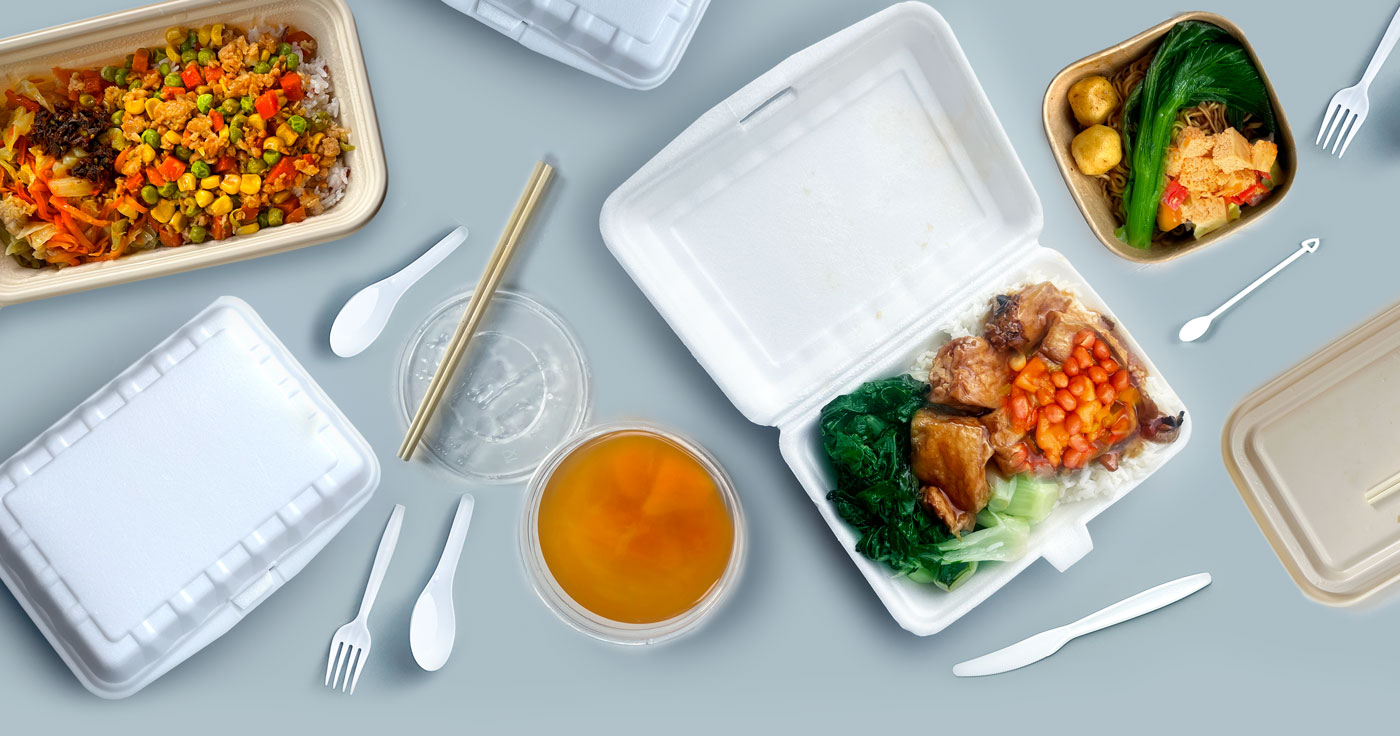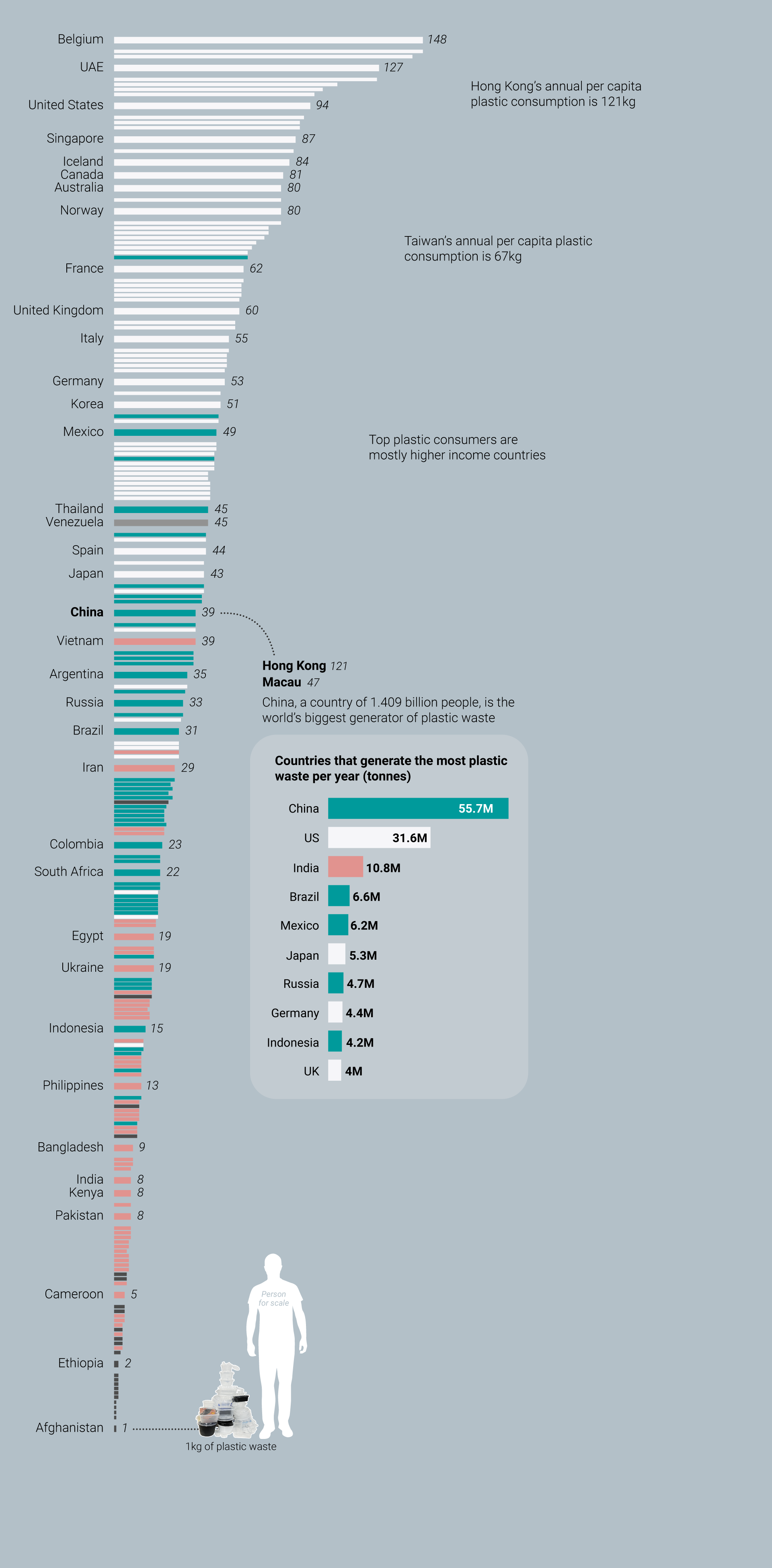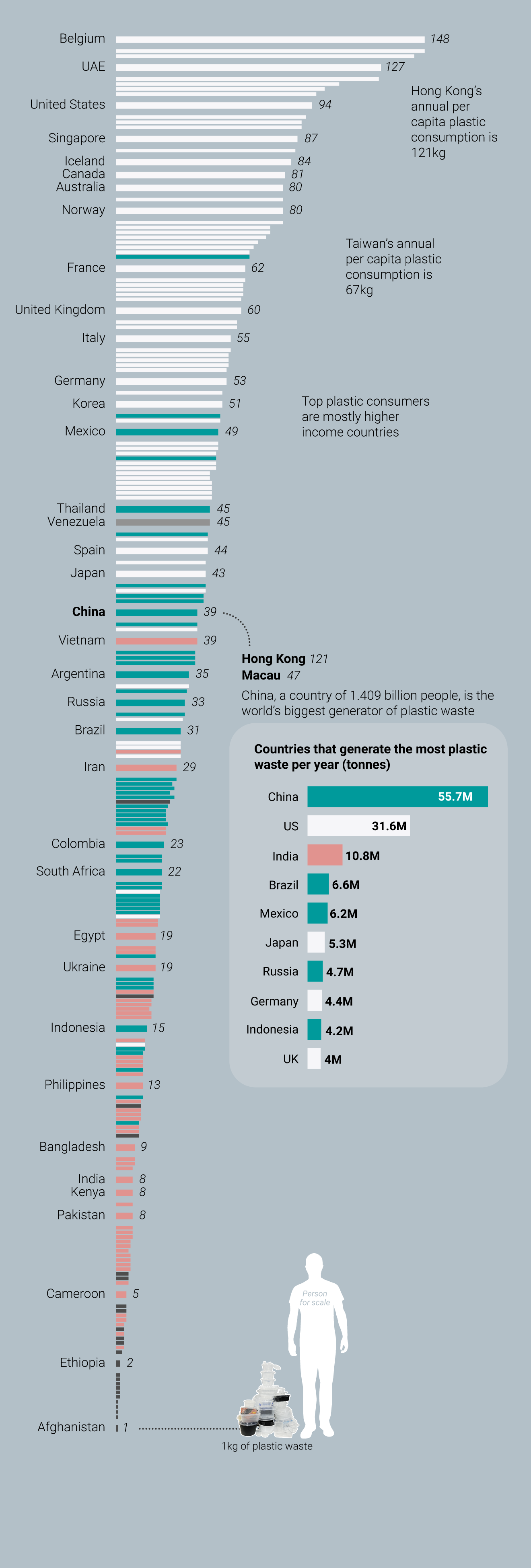
Plastic unfantastic:
what’s banned in Hong Kong’s war on waste
Hong Kong is taking a major step in its war on waste by banning many
single-use plastics. New rules, which come into force on the
symbolic date of April 22, 2024 – on Earth Day – aim to cut down on
non-biodegradable plastics in landfill sites. The first phase
prohibits the sale and distribution of single-use plastics such as
straws and cutlery, as well as styrofoam food containers. Phase two,
which could start as early as 2025, will ban single-use plastic cups
and boxes for takeaway services.
Here’s a visual guide to the new rules.
Lunch experiment: how much plastic waste?
Hong Kong, a bustling city of nearly 7.5 million, has more than 17,000 restaurants. People throw out tens of thousands of tonnes of plastic every year, much of it packaging waste from takeaway meals. In a small experiment conducted March 18-22 before the ban, six members of South China Morning Post’s graphics team kept track of the disposable packaging and utensils that came with their takeaway lunches.
New regulations
Recycling in Hong Kong
Every day in Hong Kong, thousands of tonnes of garbage including plastic waste needs to be disposed of at three strategic landfills. The facilities have a total capacity of 139 million ㎥. This would be the equivalent of a giant cube more than 518 metres high.
In 2022, Hong Kong generated 5.97 million tonnes of municipal solid waste (MSW) with more than 4 million tonnes (almost 70%) ending up in two landfills, while the rest was recovered for recycling either locally or by exporting. Plastic waste was the second largest contributor with 2,369 tonnes per day. Only 12.3% of Hong Kong’s total plastic waste is recovered for recycling.
Amount of plastic waste recycled in Hong Kong in 2022
Most facilities in Hong Kong are small and rely mainly on manual sorting. Hong Kong does not have any of the typical material recovery facilities (MRF) found in developed countries. Plastics mixed with generic waste, contaminated with stains, or wrapped in plastic bags will likely end up in landfill. This highlights why people should sort their own rubbish for recycling.
Hong Kong recycling capabilities compared with other places
Hong Kong’s waste-charging scheme
Hong Kong’s new waste charging scheme will take effect on August 1, 2024. From this date, residents will be required to use prepaid, government-approved garbage bags to dispose of trash. Under the charge-per-bag arrangement, residents will pay 11 Hong Kong cents (1 US cent) for each litre of garbage they throw away. Bags will come in nine sizes.
To reduce MSW costs, people are encouraged to make use of free recycling initiatives such as GREEN@COMMUNITY.
What is GREEN@COMMUNITY?
It is a community recycling network developed by Hong Kong’s Environmental Protection Department. People can sort their garbage into 11 categories and dispose of it at facilities throughout Hong Kong.
Global plastic pollution
Plastic consumption varies among countries and territories. According to Environmental Action’s 2024 Plastic Overshoot report, people in Belgium are the top generators of plastic waste, with 147.7kg per person a year. Hong Kong is among the world’s highest per capita plastic consumers.
Plastic consumption per person in a year
(kg)


In March 2022, the United Nations approved a landmark agreement to create the world's first ever global plastic pollution treaty. Even before that, nations and territories began regulating or banning single-use plastics. Here’s a look.
Associate Creative Director Marcelo Duhalde
Edited by Andrew London
Sources: South China Morning Post archives, Hong Kong Environmental Protection Department, Hong Kong Census and Statistics Department, Plastic Overshoot Report